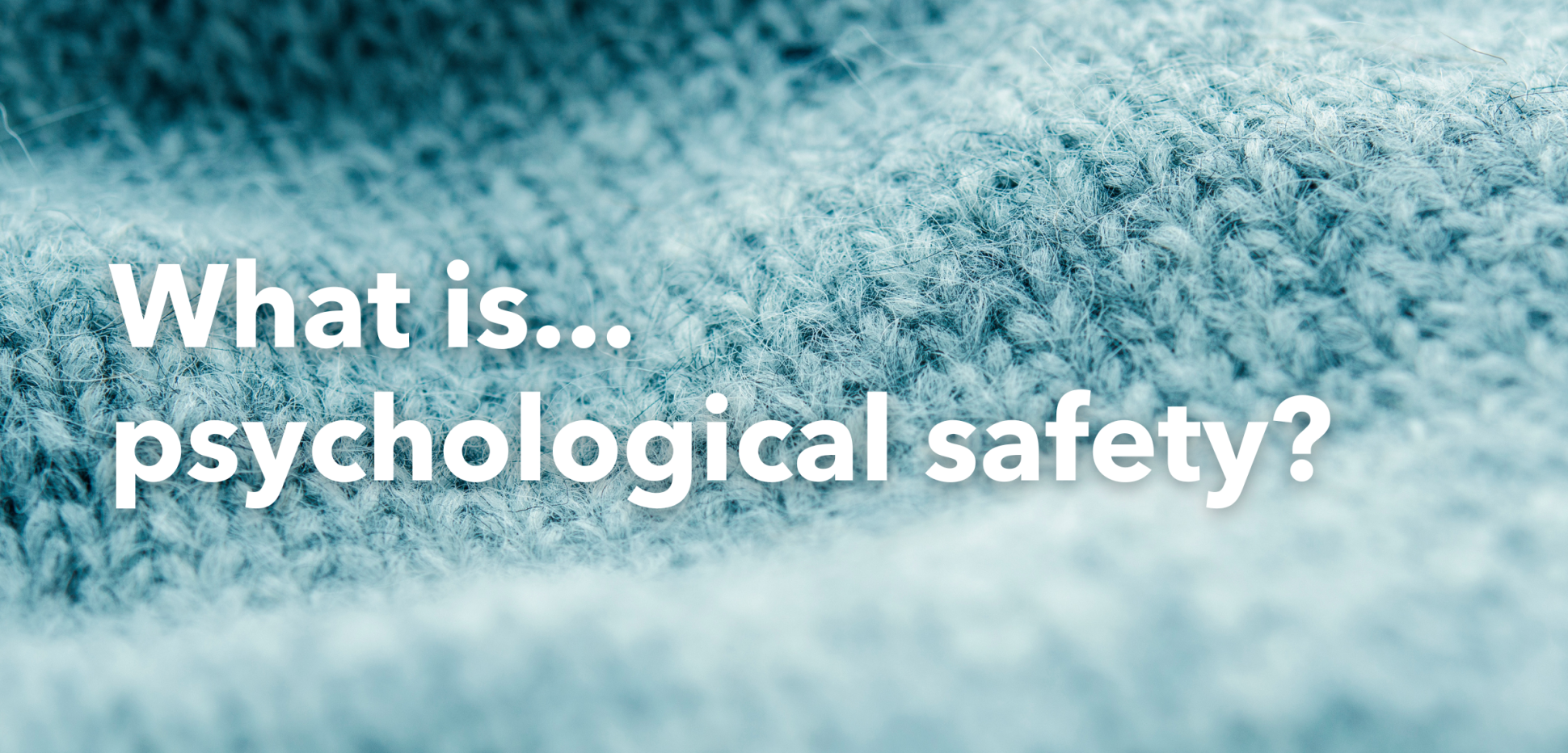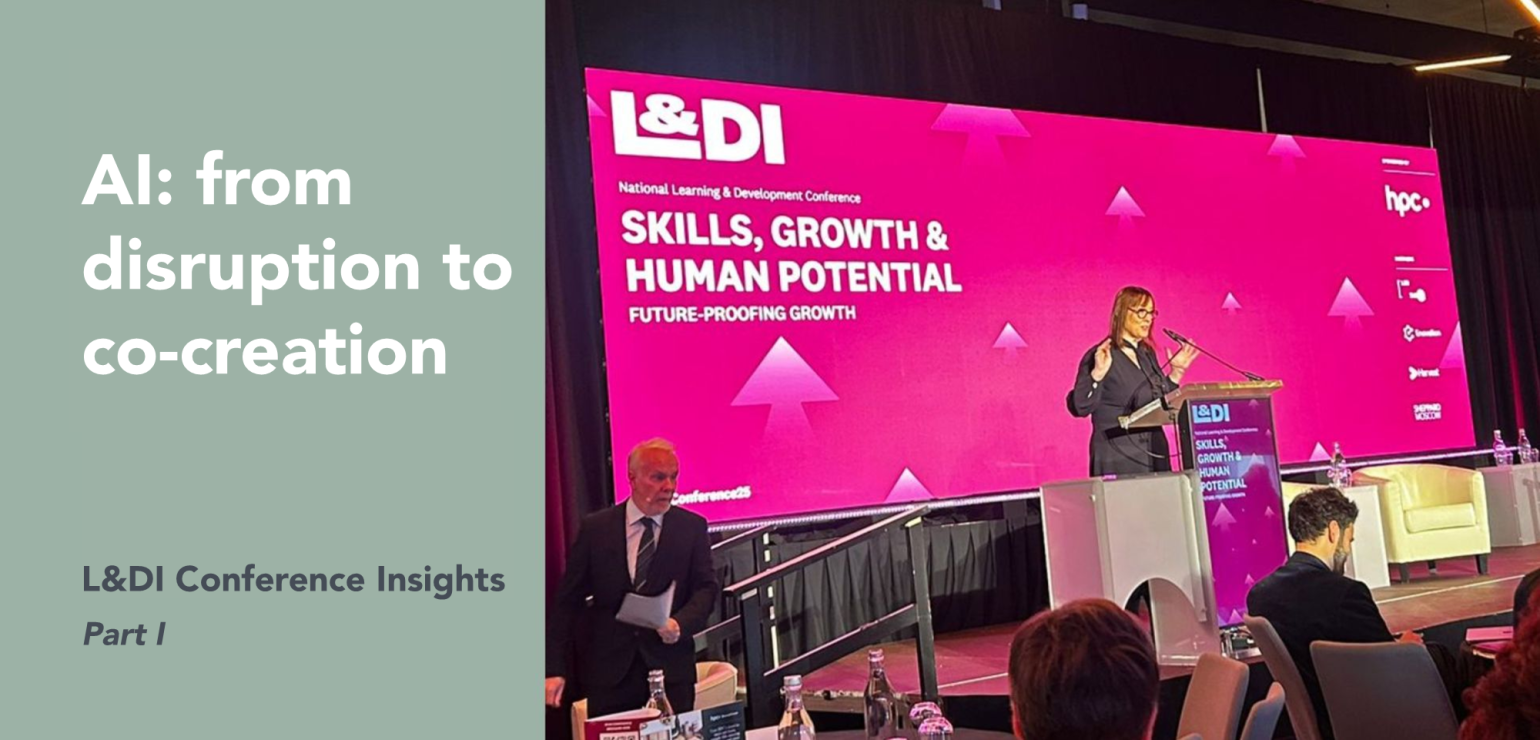What is... psychological safety?

Psychological safety is a climate of trust, where individuals feel safe to be themselves, to take risks, to openly discuss challenging issues and to be confident that they will be treated fairly and speak without fear of negative repercussions.
Why is psychological safety important for organisations?
A foundation of psychological safety is incredibly important for organisations for a number of reasons, all of which are interconnected.
1. Positive work-life
A culture or climate of psychological safety has a positive impact on individuals, enabling them to feel respected and safe at work, sure of their footing, and so able to do their best work.
2. Amplifying diverse perspectives
Psychological safety is a powerful driver of inclusion, creating the conditions for people to bring their whole selves to work. As team members bringing their diverse perspectives to issues, teams can be more effective at creative problem solving or taking a new approach.
3. Enabling open communication
Open communication means difficult conversations can be had, thorny issues addressed before they grow. It also helps individuals stay engaged – for example transparent career conversations can help individuals voice their aspirations and leaders to practically assist and mentor.
4. Powering innovation
Individuals who feel safe in their role and place in the team are able to take calculated risks, the very risks needed to drive innovation. Without psychological safety, teams can’t do collective creative thinking – you need to feel safe to go where your meandering mind will take you and know that others will follow you without judgement.
How does psychological safety ‘happen’?
Building a culture of psychological safety needs to happen at every level, and it must be worked on constantly. Like trust it can take years to build up but eroded in an instant.
Aoife Keane has written brilliantly on this topic before with her blog ‘Creating a Psychological Safety Blanket’. The responsibility lies on no individual or role, instead psychological safety is the remit of everyone and should permeate people’s actions and behaviours across the organisation.
Leaders have an important role to play in modelling behaviours that reinforce psychological safety – consistent transparency, intentional conversations around inclusion and belonging, taking time to explore what psychological safety looks and feels like person by person and for their team as a whole.
Individual strategies for building psychological safety include:
- Assume positive intent from colleagues and managers
- Find compassion for others
- Appreciate others’ strengths and avoid focusing on slights
- Cultivate forgiveness and compassion for oneself
Team strategies include:
- Put the collective above one’s personal goals
- Be wary of our inner critic – we all strive for high standards, but don’t let your own leak into the team dynamic
- Be aware of your impact on the group
- Seek feedback
Psychological safety in 2024
The workplace is changing – rapidly advancing technology, ever-increasing complexity and uncertain eco-political landscapes – so it’s important that we double down on our ability to connect with each other, to see and be seen by our colleagues, to collaborate with each other. Technology can contribute to inspiration and collaboration, but it can’t replace the energy of being in a room together or riffing on ideas and exploring possibilities.
In a time when trust in digital media has been eroded by AI, we’re also going to need to look into the whites of each other’s eyes, to really feel and see things. A simple example is hiring; there is a growing trend of people sending in AI created CVs or using AI responses in live virtual interviews. We therefore need to create opportunities for genuine human connection in our processes or risk making wrong choices and/or creating disconnected teams.
Technology isn’t necessarily a blockade to human connection, however. With AI taking over time-consuming tasks – for example taking minutes – everyone at the table can fully give attention to what matters and connect with each other as human beings as well as on the issues.
So, what is psychological safety?
Psychological safety is a climate in which colleagues feel safe to be themselves, to speak up and collaborate without risk of repercussions or judgement. It is also a powerful driver of innovation and resilience and will serve organisations well as they face into an ever-changing landscape.
To read more about psychological safety, check out another of Aoife’s blogs which looks at the Japanese art of Kintsugi and how it relates to building safety in teams – read here.

 Aoife Keane
Aoife Keane 

